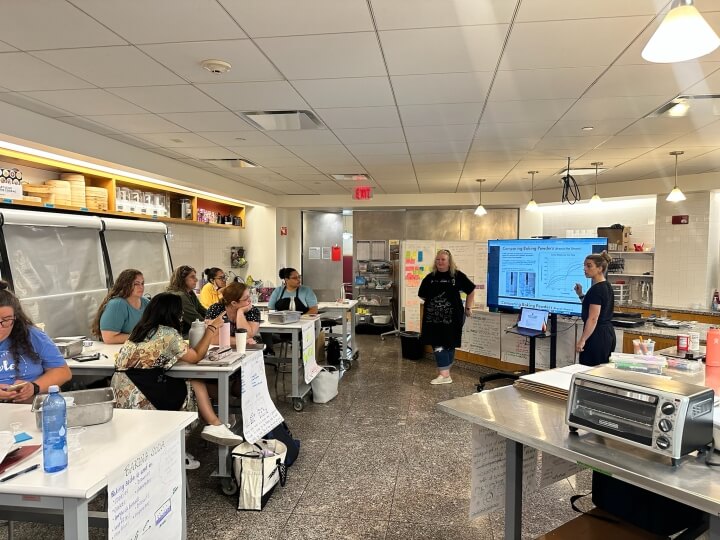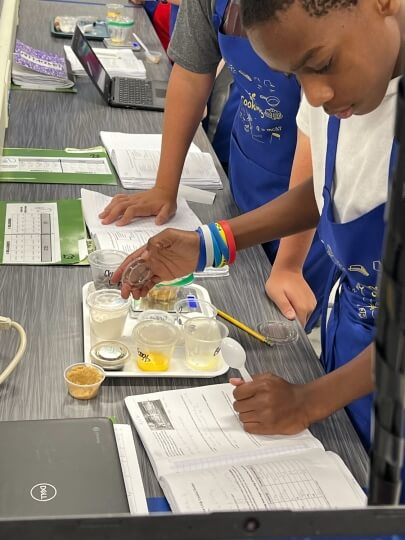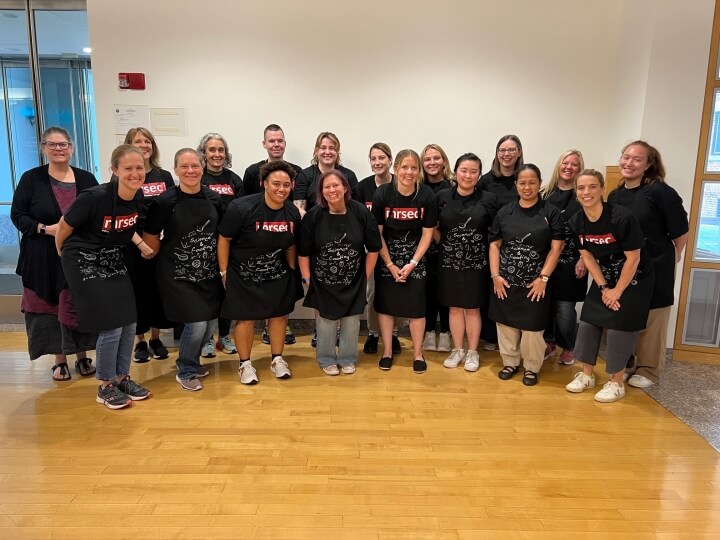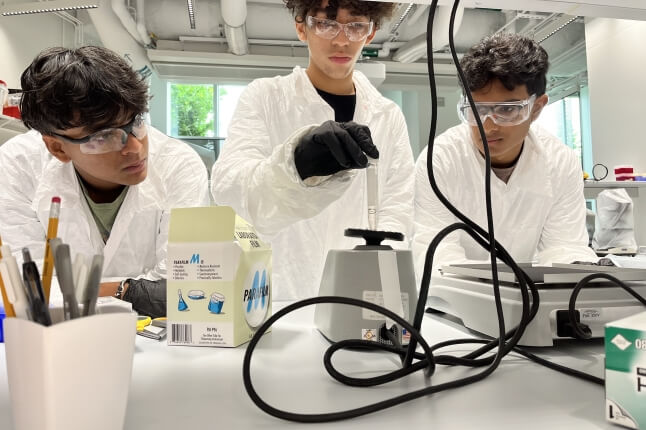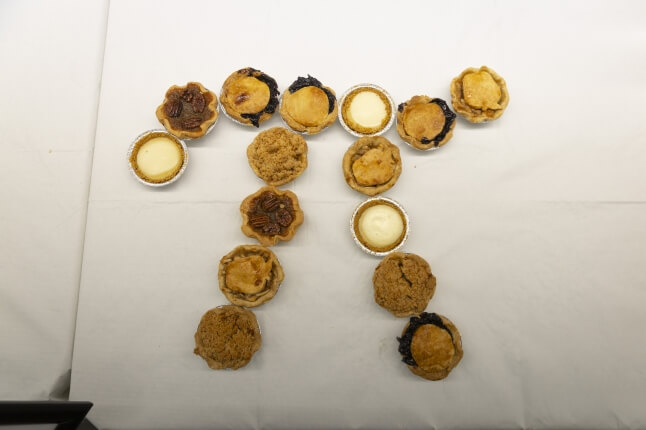News
Kate Strangfeld, M.Ed. '22 and teacher Shawn Boggs lead a middle school teacher workshop discussing differences among baking powder brands at the Harvard Science and Cooking Laboratory
Mary Velasquez and Shawn Boggs wanted to make their science instruction more impactful. Velasquez, a fourth- to sixth-grade Montessori teacher in Cambridge, and Boggs, an 8th-grade science teacher in Shepherdsville, Kentucky, had similar goals – to make science relatable and interesting to their students.
That desire led them to the Science and Cooking for Secondary Science Educators Program, an initiative at the Harvard Materials Research Science and Engineering Center (MRSEC) designed and led by Kate Strangfeld, M.Ed. '22 along with Pia M. Sörensen, Senior Preceptor in Chemical Engineering and Applied Materials, and Kathryn Hollar, Director of Community Engagement and Diversity Outreach at the Harvard John A. Paulson School of Engineering and Applied Sciences (SEAS). The program, spun out of Harvard’s popular Science and Cooking course and public lecture series, “is tailored to empower middle and high-school teachers to use food and cooking as a medium to teach science and engineering that is also aligned to national secondary teaching standards,” said Sörensen. This program now provides complete instructional resources, professional learning opportunities, and hands-on activities to engage their students.
“I saw my students getting excited about science in a way I had never seen before,” Velasquez said. “Their confidence just soared.”
Students in Shawn Boggs’ class explore precision and unit conversions through chocolate chip cookies
Velasquez and Boggs participated in the program’s first pilot workshop in the summer of 2023 and have been critical in building this initiative through their continued participation. They spent several months in their classrooms teaching food-based science lessons from 2023-2024, emphasizing that by connecting science to something as familiar as food, the program makes abstract concepts more accessible and engaging for students.
“This has completely transformed the way that I teach my class,” Boggs said. “I was able to take these otherwise really hard-to-understand chemistry concepts and translate them in a way that made sense to my students.”
One of the goals of the program is to build a community of teachers deeply engaged in this work who can support and inspire each other. Velasquez and Boggs joined Strangfeld and Meredith Moore, a high school chemistry teacher from Washington, D.C. who participated in the 2023 workshop, to share their experiences by presenting at the National Science Teachers Association (NSTA) annual national conference in Denver in March 2023. Together, they led four sessions, reaching more than 225 teachers. Three of these sessions were hands-on workshops in which participants made fresh cheese, created dough, and experimented with different brands of baking soda to explore the underlying properties of these soft materials and their ingredients.
Strangfeld said the visibility of the conference “helped us expand our reach to new areas in the U.S. 75% of our participants this year were from out-of-state and traveled to Harvard to be a part of this program. I think it speaks to the value both teachers and their districts see in this type of learning.”
The 2024 MRSEC Science and Cooking high school teacher workshop cohort with SEAS Director of Community Engagement and Diversity Outreach Kathryn Hollar (back left), Mary Velasquez (back second from left), Kate Strangfeld (front right), and Annie Lee-Hassett (back right).
Velasquez and Boggs also helped Strangfeld facilitate and lead workshops for new participants this past summer. Twenty-six new teachers from 24 states came to campus for an intensive four days of professional learning, followed by four days of virtual learning. When discussing Velasquez and Bogg’s help, Strangfeld shared, “Their involvement was invaluable. It is important that this program is rooted in what is truly going on in the classroom. Mary and Shawn could share tips about how to do this in back-to-back classes with many students, how to support and empower students to design their own investigations, and how to build students’ understanding over time.”
To continue to build this active community network, educators stay connected throughout the school year. “The support from my colleagues and the community we built through this program was crucial to my growth as an educator,” Velasquez said.
Teachers who’ve gone through the program are now working with over 1,600 students this year. For more information about Harvard’s Science and Cooking Secondary Science Teachers Program and upcoming workshops, please visit our website.
The Harvard MRSEC is supported by the National Science Foundation (DMR-2011754).
Cutting-edge science delivered direct to your inbox.
Join the Harvard SEAS mailing list.
